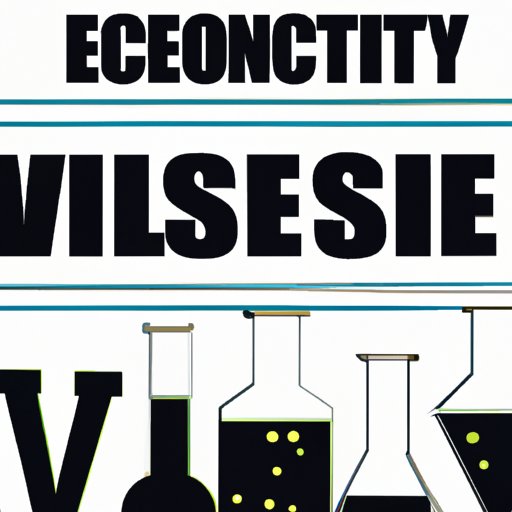Introduction
Experimentation plays a vital role in the advancement of science. It enables scientists to test hypotheses, validate theories, and make new discoveries. In this article, we will explore why experimentation is so important to science and examine the various benefits it provides.

Analyzing the Role of Experimentation in Scientific Progress
Experimentation is an integral part of the scientific process. It helps scientists understand the relationship between hypotheses and experiments, and how experiments can be used to test and validate theories. Experiments also help scientists gather data and draw conclusions about their findings.
For example, when scientists come up with a hypothesis about a certain phenomenon, they may use experimentation to test the hypothesis and determine if it is valid. If the results of the experiment support the hypothesis, then the hypothesis is considered to be true. On the other hand, if the results of the experiment contradict the hypothesis, then the hypothesis is rejected and a new hypothesis must be formulated.
In addition, experiments are often used to collect data about a particular phenomenon. This data can then be used to draw conclusions about the phenomenon and its implications. For instance, a scientist may conduct an experiment to measure the amount of carbon dioxide in the atmosphere. The results of the experiment can then be used to infer the impact of human activity on climate change.

Exploring the Benefits of Experimentation for Scientists and the Public
Experimentation provides numerous benefits for both scientists and the public. For scientists, it allows them to gain a better understanding of the world around them, as well as to test and validate theories. Furthermore, experiments can lead to the discovery of new phenomena, which can open up new avenues of research.
For the public, experimentation can lead to a better understanding of the natural world. Through experiments, scientists can uncover information about the environment and its effects on human health and well-being. This knowledge can then be used to inform public policy decisions and create more effective solutions to societal issues.
As Nobel Prize-winning physicist Richard Feynman said, “The first principle is that you must not fool yourself—and you are the easiest person to fool.” Experimentation is essential for ensuring that scientists don’t fool themselves and that their theories are supported by evidence.
Investigating the Necessity of Experimentation to Validate Scientific Theories
Experimentation is essential for validating scientific theories. Without experimentation, it would be impossible to test hypotheses and draw conclusions about the natural world. Experiments provide scientists with empirical data that can be used to verify or disprove theories.
There are different types of experiments that can be used to test theories. These include observational experiments, controlled experiments, and randomized experiments. Observational experiments involve observing natural phenomena without manipulating variables. Controlled experiments involve manipulating variables in order to observe their effects. Randomized experiments involve randomly assigning subjects to different groups in order to compare outcomes.
No matter what type of experiment is used, experimentation is necessary for verifying the validity of scientific theories. Without experimentation, it would be impossible to know if a theory is accurate or not.

Examining the Impact of Experimentation on Scientific Discovery
Experimentation also plays an important role in scientific discovery. By testing theories and gathering data, experiments can lead to new discoveries. These discoveries can then be used to further scientific knowledge and advance the field.
For example, in the mid-19th century, the chemist Louis Pasteur conducted experiments that showed that microorganisms were responsible for fermentation. His discoveries revolutionized the fields of microbiology and biochemistry and enabled the development of vaccines and antibiotics. His experiments also paved the way for modern medicine.
Experimentation is critical for making new discoveries and advancing scientific knowledge. Without experimentation, scientists would not have the tools to uncover new phenomena and explore the unknown.
Conclusion
Experimentation is essential for validating scientific theories and enabling new discoveries. It helps scientists understand the relationship between hypotheses and experiments and how experiments can be used to test and validate theories. Experiments also enable scientists to gather data and draw conclusions about their findings. Furthermore, experimentation provides numerous benefits for both scientists and the public, such as a better understanding of the natural world and the potential to make new discoveries. Finally, experimentation is necessary for verifying the validity of scientific theories and making new discoveries.
Overall, experimentation is an invaluable tool for advancing science and providing insight into the natural world. It is essential for validating scientific theories and enabling new discoveries. Without experimentation, scientific progress would not be possible.
(Note: Is this article not meeting your expectations? Do you have knowledge or insights to share? Unlock new opportunities and expand your reach by joining our authors team. Click Registration to join us and share your expertise with our readers.)
